Working Group Lead: Prof. Nick Beresford (UK Centre for Ecology & Hydrology, United Kingdom)
Contact: nab@ceh.ac.uk
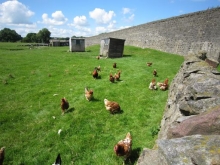 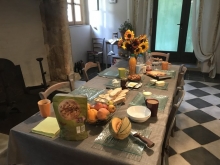 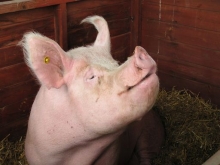 |
Working Group Overview
There is a need to be able to predict radionuclide activity concentrations in foodstuffs for: (i) assessments of planned releases of radioactivity; (ii) existing contamination situations to guide and complement monitoring; and (iii) emergency planning and management. In some exposure scenarios, the transfer of radionuclides through the food chain to consumers represents a major contribution to dose. For instance, it was necessary to impose remediation measures (or countermeasures) to reduce exposure via contaminated foodstuffs across a number of European countries following the Chernobyl accident. However, there are considerable uncertainties associated with radioecological simulation models used to predict the transfer of radionuclides along food chains.
Primarily addressing Challenge 1 of the Radioecology Strategic Research Agenda the overall aim of the Human Food Chain Working Group is to improve the radioecological models used to predict radionuclide activity concentrations in foods consumed by humans. The development and evaluation of remediation measures to reduce radionuclide activity concentration in human foodstuffs is also within the remit of the Working Group.
Working Group Activities
The activities of the Working Group were initiated during the COMET project and some initial activities were conducted within the framework of the project. These were focused on the regional adaptation of non-radioecological parameters (e.g. animal feeding regimes, harvest times and yields, leaf area indices) in models (see Thørring et al. 2016).
The CONFIDENCE project (2016-2019) was part of the Euratom funded European Joint Programme CONCERT. CONFIDENCE involved members of five European Radiation Protection Platforms namely ALLIANCE, EURADOS, MELODI, NERIS and SHARE. The CONFIDENCE project had a work package focused on radioecological food chain transfer models for post-emergency planning and management. The programme of work conducted addressed key challenges identified in the Radioecology Strategic Research Agenda, and specifically, priorities identified by the Human Food Chain Working Group. The activities of the CONFIDENCE work package were:
- Improving models, including – characterising and analysing probability distribution functions associated with transfer parameters, conducting 131I tracer studies on the plant-animal-milk pathways and characterising radionuclide transfer in Mediterranean production systems
- Developing and assessing process-based soil-plant models for predicting Cs and Sr transfer to crops
- Incorporating radioactive (or ‘hot’) particles into transfer models to improve predictions
A summary of the findings of the CONFIDENCE work package considering human food chain models can be found in Beresford et al. (2020).
In September 2019, the ALLIANCE co-organised a workshop to discuss future research priorities for human food chain radioecology. The workshop involved consultation with representatives from regulatory bodies, industry, governmental agencies and international bodies. The resultant recommendations for future priorities, which can be found in Beresford et al. (2020) were used to update the Radioecology Strategic Research Agenda.
Working Group Members:
Alternative Energies and Atomic Energy Commission (CEA, France); Center for Energy, Environmental and Technological Research (CIEMAT, Spain); Center for Environmental Radioactivity (NMBU-CERAD, Norway); Central Mining Institute (GIG, Poland); Environmental Radioactivity Laboratory of the University of Extremadura (LARUEX, Spain); Federal Office for Radiation Protection (BfS, Germany); Institute for Radiological Protection and Nuclear Safety (IRSN, France); Institute of Nuclear and Particle Physics (NCSR Demokritos, Greece); Leibniz Universität Hannover (Germany); National Nuclear Centre of the Republic of Kazakhstan (NNCRK, Kazakhstan); NRG – Consultancy & Services (Netherlands); Nuclear Research Center (SCK●CEN, Belgium); Radiation and Nuclear Safety Authority (DSA, Norway); Radiation and Nuclear Safety Authority (STUK, Finland); Radiation Safety Authority (SSM, Sweden); Swedish Defence Research Agency (FOI, Sweden); Technical University of Lisbon (Portugal); Thünen Institute (Germany); UK Centre for Ecology & Hydrology (UKCEH, United Kingdom); University of Barcelona (Spain); University of the Basque Country (Spain)
Any member of the ALLIANCE can become a member of a Working Group (email the appropriate Working Group Leader).
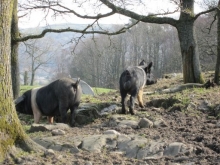 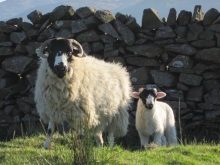 |
Photo credits: N.A. Beresford, C.L. Barnett (UKCEH)
Page last updated: Apr/May 2020
